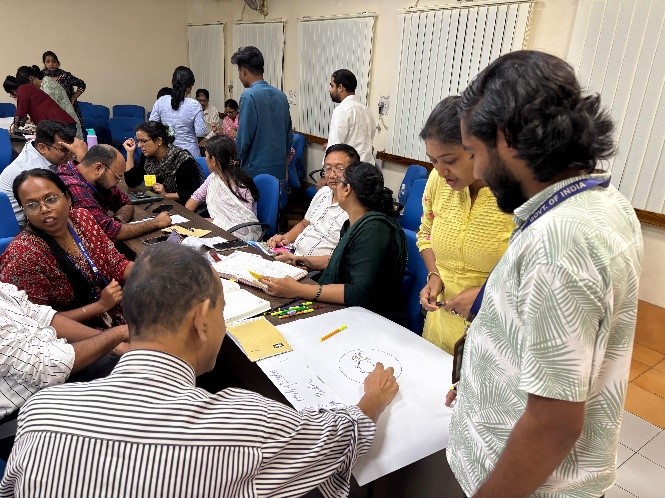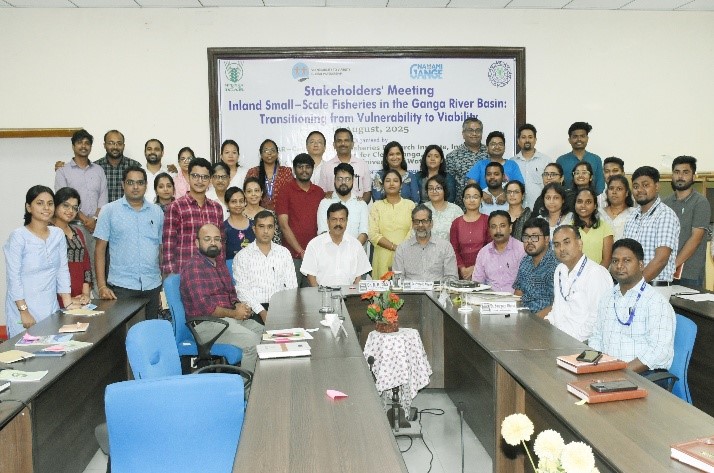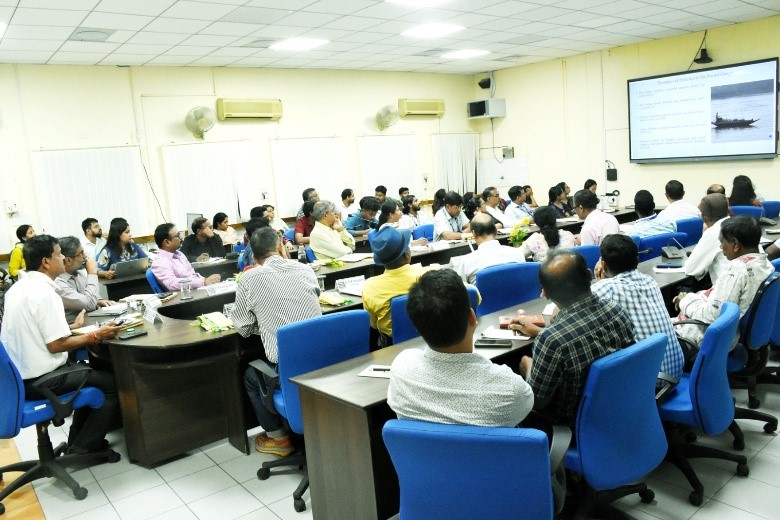Overview
Publications
Recruitment
Intranet
CIFRI Corners'
A Workshop on Inland Small-Scale Fisheries in the Ganga River Basin was organised to address all the issues and explore possible avenues for recovery from the challenges at ICAR-Central Inland Fisheries Research Institute, Barrackpore, West Bengal, on 18 August 2025. The workshop was jointly organised by ICAR-CIFRI, India, National Mission for Clean Ganga (NMCG), India and the V2V Global Partnership, University of Waterloo, Canada. The event brought together 75 participants, including experts from various ICAR institutions, representatives of fishers’ cooperatives, and community members. ICAR-CIFRI has been working for the past 9 years on multiple aspects of river ecology, fisheries, biodiversity and socioeconomic profiles, including ranching of carps, Hilsa and Mahseer. Further research has also focused on small-scale fisheries issues and challenges (SSF) in the river Ganga. The study shows that inland SSF are facing multiple challenges, including declining fish diversity and stock, disrupted river wetland connectivity, hydrological alterations due to dams and barrages and climate change impacts.


Mr. Lokman Molla, President of Kultali Milan Tirtha Society, lauded the initiative, calling it “a ray of hope for many women who have never imagined their small ponds could become a source of income. It’s a step toward self-reliance.” Rina Mondal, a participant from Kultoli village, shared, “I always saw the pond behind my house as just a water body. Now I see it as a means to support my children’s education and improve our diet”. Another beneficiary, Shampa Bairagi, added, “With CIFRI’s support, I feel confident to manage fish farming. I hope to expand it and even inspire other women in my village.”











